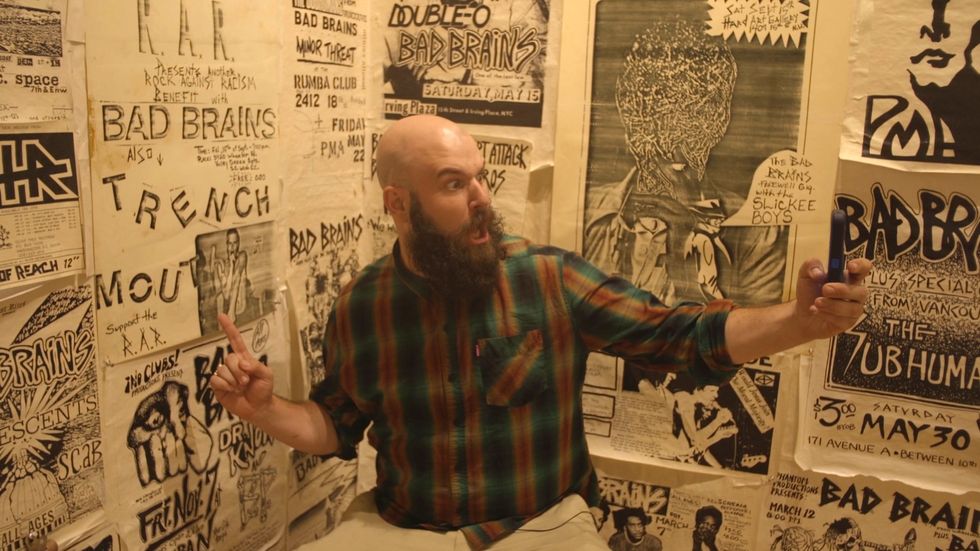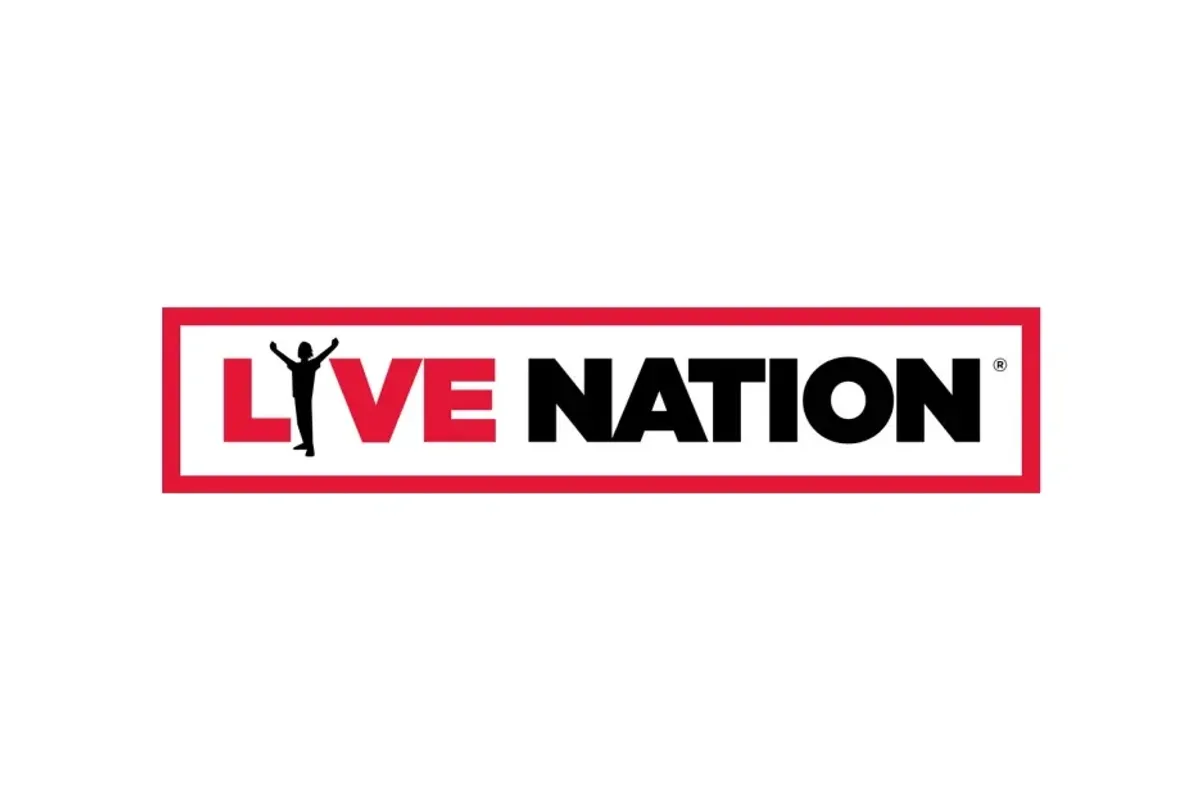Five Questions With… Damian Abraham
The Fucked Up frontman turns podcast host with a new web series, Punk As F*ck. Here he discusses the origins of the podcast, LA’s proto-punk scene, his disdain for a nasty Proud Boy, and punk’s political impact.

By Jason Schneider
Damian Abraham is known to many as the vocalist for Polaris Prize-winning Toronto hardcore collective Fucked Up, but since the band’s rise to international prominence over the past decade he has turned his lifelong passion for punk rock into a secondary career as a kind of caretaker for the genre, most notably as television—and now podcast—host.
Abraham’s latest venture is Punk As F*ck, an eight-episode web series made in partnership with FLOOD Magazine, which explores how punk rock ideals have become ingrained in American culture, specifically in Los Angeles, for the first of what is planned to be multiple seasons. Interview subjects include John Doe of X, Moby, and producer Steve Albini, but the overall scope of Punk As F*ck reaches beyond music into how punk inspired a generation to live life on its own terms and find ways to approach art and commerce in completely independent ways.
Punk As F*ck episodes will be regularly posted at FLOODMagazine.com over the coming weeks, and we were fortunate to be able to speak with Damian Abraham to find out more about the series.
Where did the idea for Punk As F*ck originate, and how did the project come together?
I’ve been obsessed with punk for 25 years at this point. Part of that has involved intensely studying where it came from, how it took hold and the people that came out of it. That’s been the focus of my podcast Turned Out A Punk for the past five years, so when the people at FLOOD came to me with the idea of doing a show looking at punk on a city-by-city basis, it was a perfect collaboration.
Everyone on the team was amazing and fun to hang out with. It was an awesome show to get to be involved in. I woke up every day thinking, “I get to spend the day playing punk rock tourist and talking to friends and heroes alike about music. This is the perfect gig.
Indeed, you've turned your passion for punk into a multi-media career. How would you describe that evolution over the past decade?
It has been a very fortunate, accidental evolution. I’m incredibly lucky to have had the opportunities I’ve had. I somehow went from being a fat bald dude known for bleeding on stage to being a fat bald dude who has hosted small network TV shows. It is wild to me!
Part of that luck is the timing of everything. Fucked Up was just a DIY punk band doing our thing when the music media latched on to us. All these older punk and hardcore kids had come into positions of power at the music media outlets they worked at and started writing about us. We leaned in and ending up riding a wave. At the same time as everything was going on with Fucked Up, I was working on all sorts of other things in the background and at some point, the two seemed to merge.
I think I realized that I am only good at working on stuff I'm passionate about. I was working as VJ on MuchMusic in the dying days of “music television” and they would sometimes get me to interview pop artists and it would always go so badly! I kind of had to carve my own niche out of necessity.
The first season of Punk As F*ck mainly focuses on L.A. What made it such a hotbed for punk rock compared to other U.S. cities?
Where punk starts is a hotly contested topic, as I’m sure you know. I am one of those people that think it has no real specific origin point. A handful of bands were all arriving at the same thesis around the world by about 1974. This was certainly happening in L.A. at the time. Bands like the Imperial Dogs, the Nerves, Zolar X, The Quick, and The Runaways are all making far more “punk” sounding records than the stuff that would be coming out of the CBGBs scene a couple of years later.
I think it really took hold in L.A. because it was the return of youth culture. In the mid to late ‘60s, the rise of the Sunset Strip scene and the psychedelic rock stuff was massive. The infamous 1966 Curfew Riots on Sunset kicked off a three-year period when kids took over the city. Look at the movies from the time like Wild In The Streets and Riot on the Sunset Strip; they were exploiting people's fear of a youth revolt. The Manson Family and the horrible murders they committed put an end to all of that. People got scared and the police cracked down on the kids.
That begat a five-year period where there was really no youth culture at all in L.A. The big scene at the time in the area was all the Laurel Canyon stuff. For the kids looking for something to get wild to, that wasn't it. By the mid-‘70s things were starting to pick up again and by the early ‘80s it was huge. Circle Jerks and Fear were playing to 5,000 people in L.A. at the same time only a few hundred were coming out to shows in New York and Boston. Population density obviously played a part, but I really think the youth culture drought is the main reason this huge population was drawn to it. The heavy-handed LAPD response to the early hardcore shows was indicative of how scared mainstream society was of punk. You can hear it in the hysterical press at the time; they didn’t want another Manson coming out of this thing.
Then of course there’s the weather and lifestyle in southern California. Hardcore in California found a very natural symbiosis with skateboarding. I think the two really played off each other and fuelled their respective popularities.
How would you gauge the effect punk has had on our current society in general? It's obviously infiltrated politics in both positive and negative ways, if we want to use Beto O’Rourke and Proud Boys as the opposite ends of that spectrum.
That’s definitely the most glaring two polarities of punk’s influence in U.S. politics. You can trace their origins to the same time period in punk too. Beto’s band Fosse, with Cedric from At The Drive-In, formed in the late-‘80s in the tiny San Antonio DIY punk scene. At almost the same time Gavin McInnes, the asshole that founded the Proud Boys, is playing around with his band Anal Chinook in the tiny Ottawa DIY Punch scene. At the time both would have had fairly similar left-leaning DIY punk politics. Fosse even toured Canada at one point—with Feist’s old punk band weirdly—so there is a small chance they were even at the same small shitty DIY show together.
But while Beto continued to follow in the teachings of Fugazi frontman Ian MacKaye, Gavin began to worship at the altar of ‘90s “HATE-zine” hero Jim Goad. Goad was a proto-Edgelord [provocateur] that loved nothing more than offending people different than himself. His zine Answer Me! is a clear influence on the early issues of Vice Magazine, which Gavin would help form and run a few years later. It's terrifying to think that Answer Me!—this tiny offensive zine—would have such a key role as ideologue for a “mainstream” cult within the Republican party. I often wondered if Gavin “broke bad” and turned into this hateful monster, or if he always had these views in him and was just playing good little punk rocker for a time.
Sadly punk has never been an idealized version of society, but simply a microcosm of it that seems to be five years ahead.
What's your mindset looking ahead to next year and potentially making new music?
I don’t know. I go back and forth on trying to make music. Fucked Up had plans to do a new album but now we have shelved that and are working on a project we have been doing in the background since [2011 album] David Comes To Life. I’m also talking to some friends about doing some music together. I love making music but I find these days I’m also just as happy to talk about it.

















